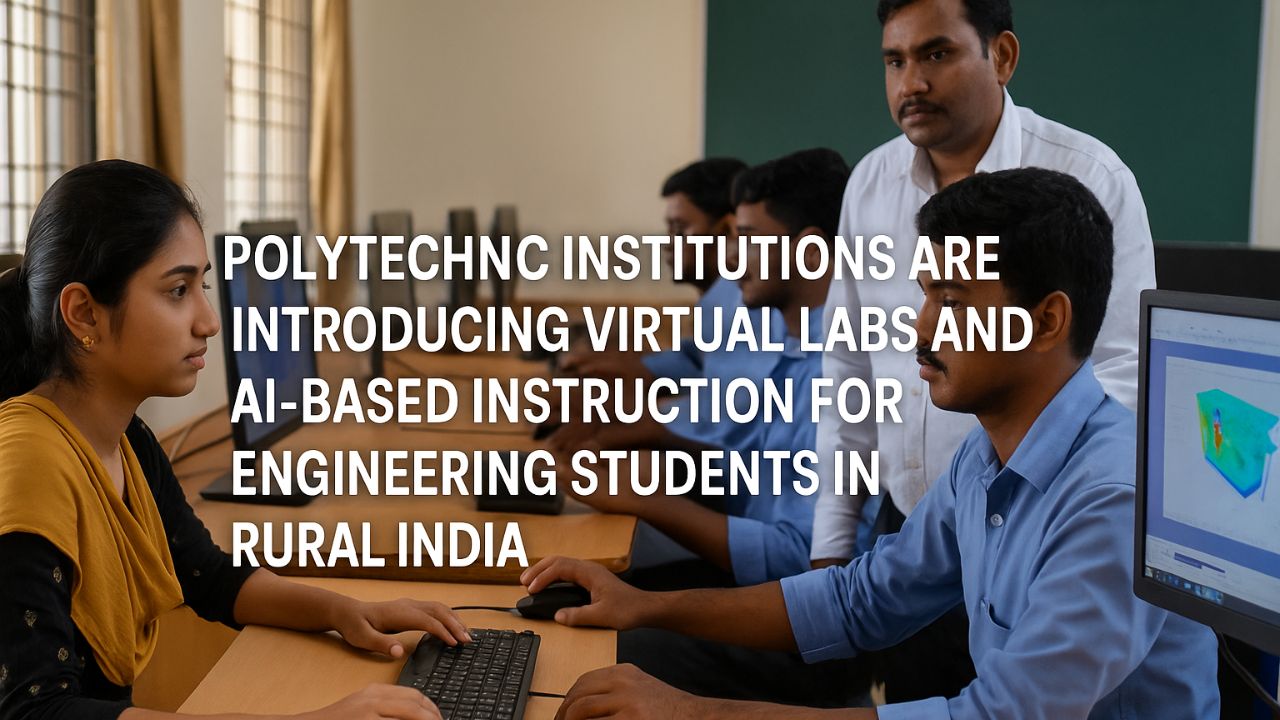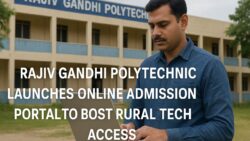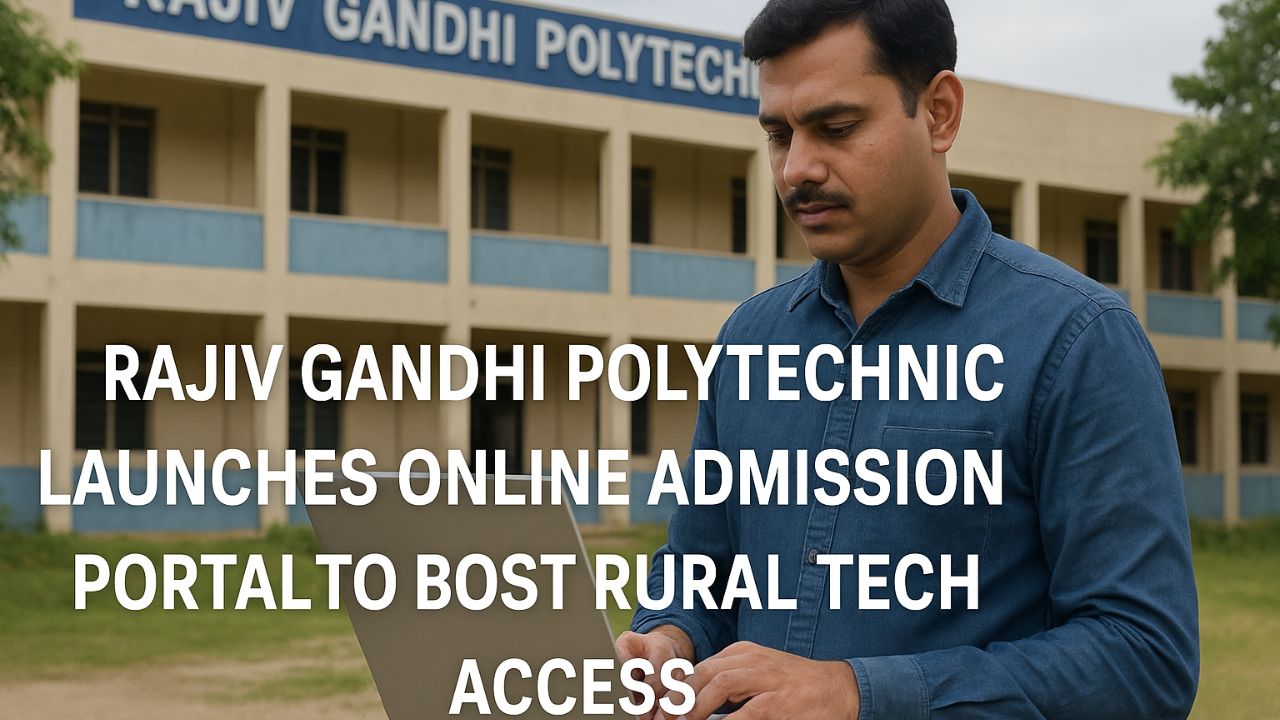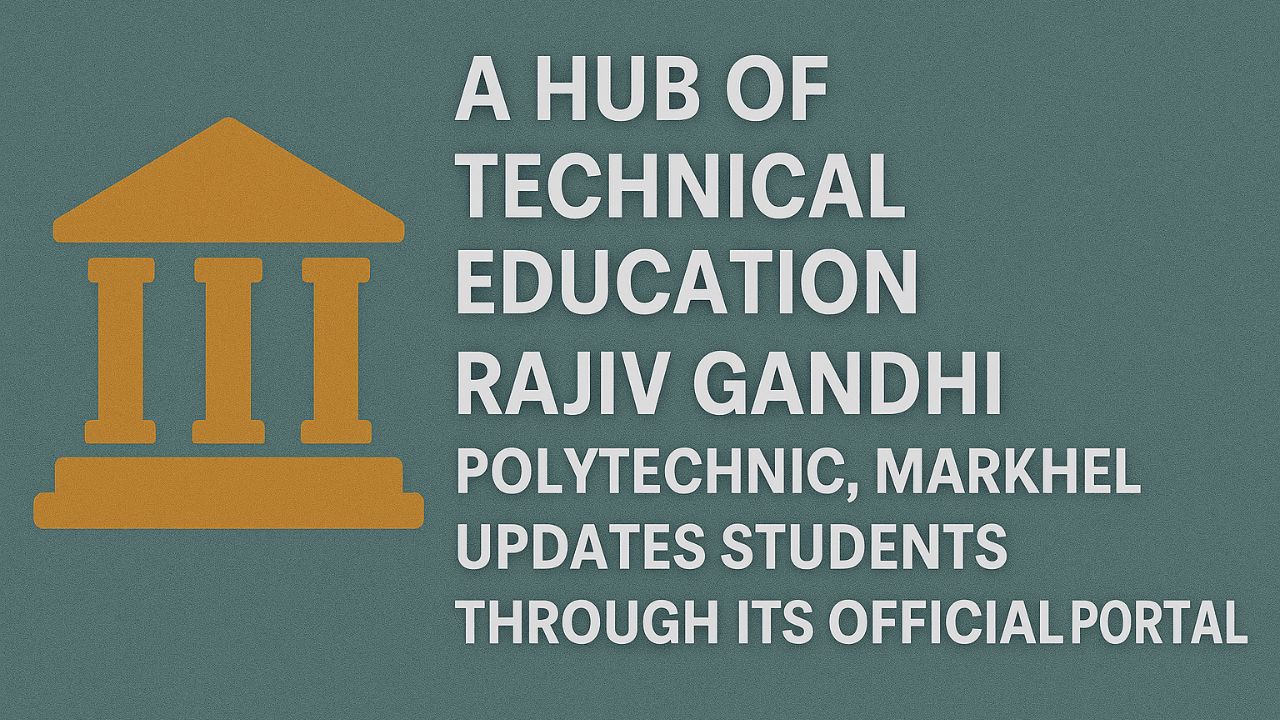Polytechnic Institutions – In a groundbreaking move to bridge the educational gap between urban and rural India, Polytechnic institutions across the country have started implementing virtual labs and AI-based instruction systems for engineering students in rural areas. This initiative is not just about digitization; it’s about democratizing access to quality technical education and empowering rural youth with cutting-edge technological tools that were once limited to elite institutions. Over the past decade, rural students have struggled with outdated lab infrastructure, limited access to experienced faculty, and a lack of exposure to industry-grade technology. The shift toward Virtual Reality (VR), Augmented Reality (AR), and Artificial Intelligence (AI) promises to revolutionize practical learning in engineering disciplines, enabling students in remote regions to experience complex experiments and simulations through a screen — often even from a mobile device. Let’s dive deeper into how these changes are shaping the future of rural engineering education.
What Are Virtual Labs and Why Are They Important?
Virtual labs are online platforms or software environments that simulate real-world lab experiments digitally. These labs replicate the functions of physical labs, allowing students to perform practical tasks without needing physical materials or lab instruments.
Key Benefits of Virtual Labs:
- Allow students to practice multiple times without consuming resources.
- Safe environment for handling dangerous experiments.
- Accessible 24/7 from remote locations.
- Cost-effective and scalable solution for underfunded institutions.
Core Features of Virtual Labs:
| Feature | Description |
|---|---|
| Interactive Simulations | Real-time responses based on student input |
| Multilingual Support | Interface available in regional languages for better understanding |
| Step-by-step Guidance | Instructions and theoretical explanations built into each module |
| Cross-device Compatibility | Runs on mobiles, tablets, and desktops |
| Assessment Integration | Tests and quizzes embedded for performance tracking |
| Offline Access | Downloadable versions for low internet regions |
| Gamification Elements | Points, levels, and rewards to increase engagement |
Role of AI in Rural Engineering Education
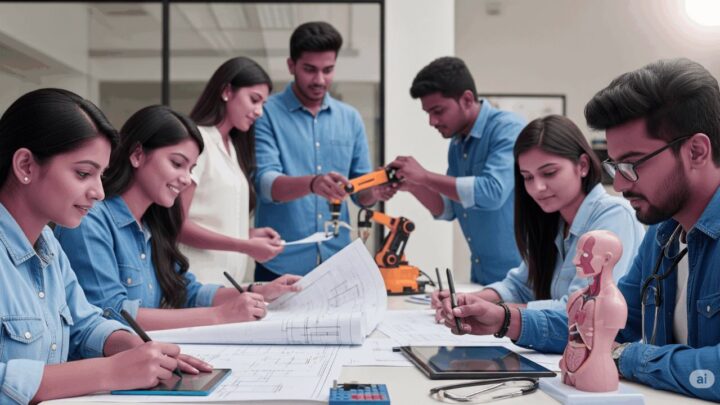
Artificial Intelligence is playing a transformational role by customizing and optimizing the learning experience of students based on their individual learning styles and progress levels.
How AI Is Enhancing Instruction:
- Personalized Learning Paths: AI algorithms identify student strengths and weaknesses, adapting content delivery.
- Automated Evaluation: Assignments, MCQs, and projects are evaluated instantly, saving teacher effort.
- Chatbot Assistants: AI-powered bots help answer queries 24/7 in regional languages.
- Voice-Based Interaction: Beneficial for students with low literacy in English.
- Predictive Analytics: Helps identify students at risk of dropping out.
Examples of AI Use in Rural Polytechnic Colleges:
| Polytechnic Name | AI Feature Deployed | District | State |
|---|---|---|---|
| Govt. Polytechnic Nashik | AI tutor for Electronics lab | Nashik | Maharashtra |
| RIT Mandya | Virtual Lab + AI analytics in CS Dept | Mandya | Karnataka |
| Aryabhatta Polytechnic | AI chatbot for first-year students | Jehanabad | Bihar |
| Govt. Polytechnic Jaisalmer | Adaptive assessments with feedback | Jaisalmer | Rajasthan |
| SBTE Jharkhand | AI for internal performance analysis | Ranchi | Jharkhand |
| MP Technical Board | Skill-mapping with AI advisor | Bhopal | MP |
| Kanyakumari Polytechnic | AI-based lab scheduling system | Kanyakumari | Tamil Nadu |
Government Support and Funding
Recognizing the importance of digital access, the Ministry of Education and AICTE have launched multiple programs and grants to support the digital transformation in rural polytechnics.
Ongoing Government Initiatives:
- Virtual Labs Scheme: Run by IITs and NITs to extend virtual labs to 1000+ rural institutions.
- AICTE MODROB Scheme: Financial support to modernize lab infrastructure using AI.
- SWAYAM/NPTEL Integration: AI-curated learning modules for engineering topics.
- PM eVIDYA and Digital India Campaign: Empowering rural students with digital resources.
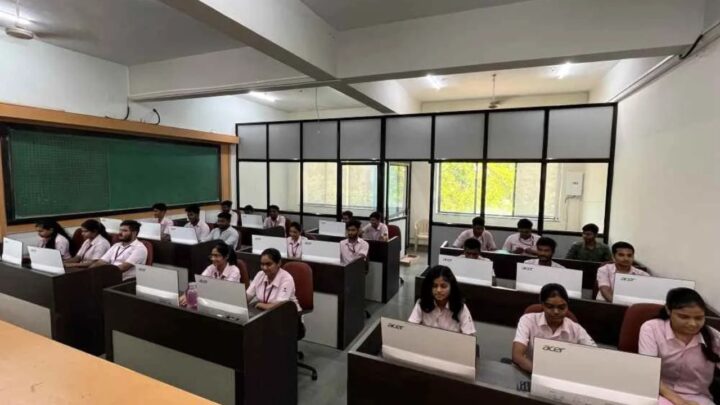
Virtual Lab Learning
Key Grants Provided:
| Scheme Name | Amount per Institution | Purpose |
|---|---|---|
| AICTE MODROB | ₹15–25 Lakhs | Upgrade labs with virtual/AI systems |
| Virtual Labs by IITs | Free | Access to 300+ lab simulations |
| PM eVIDYA Platform | ₹5 Crores (national) | Digital classrooms and smartboards |
| NKN Internet Infra | Free connectivity | Fiber-based internet for rural colleges |
Real-Life Impact on Rural Students
The transition to virtual labs and AI-based learning has had a significant impact on the confidence and performance of rural students. Let’s look at a few examples:
Case Study: Anita, 2nd-Year Electrical Engineering Student from Bundelkhand
“We never had proper lab setups. I used to imagine circuits without touching any equipment. Now with virtual labs, I’ve practiced over 50 experiments. I even got selected for an internship with a robotics startup!”
Other Positive Outcomes:
- Increase in placement rate in rural colleges by 23% (2024–25)
- Dropout rates reduced by 38% due to interactive learning
- Students winning national-level hackathons with AI support
Future of Polytechnic Education in Rural India
The path ahead looks promising. With increasing smartphone penetration, cheaper internet, and digital awareness, even remote regions are now part of India’s technical revolution. The future will likely see:
Upcoming Developments:
- 3D-printed lab kits integrated with virtual experiments.
- Hybrid teaching models with physical and virtual combo labs.
- AI-led career guidance and internship matching tools.
- Collaborations with startups for rural edtech acceleration.
Recommendations for Further Growth:
- Training for teachers in digital pedagogy.
- Inclusion of regional languages in all AI tools.
- More real-world projects through virtual collaboration.
- Dedicated helplines for technical issues in rural labs.
FAQs
1. What are virtual labs in polytechnic colleges?
Virtual labs are digital platforms where students can perform simulated experiments online, mimicking real lab setups.
2. How is AI used in rural education?
AI helps personalize lessons, evaluate students instantly, and provide chatbot-based support in local languages.
3. Are these virtual and AI facilities available offline?
Yes, many labs offer downloadable modules, and AI tools can work on low-bandwidth environments.
4. Is government support available for rural institutions?
Yes, schemes like MODROB and Virtual Labs IITs provide funding and resources for digital upgrades.
5. Can rural students compete with urban students through these tools?
Absolutely. With access to quality content and simulation-based practice, rural students are increasingly competing at par with their urban peers.
